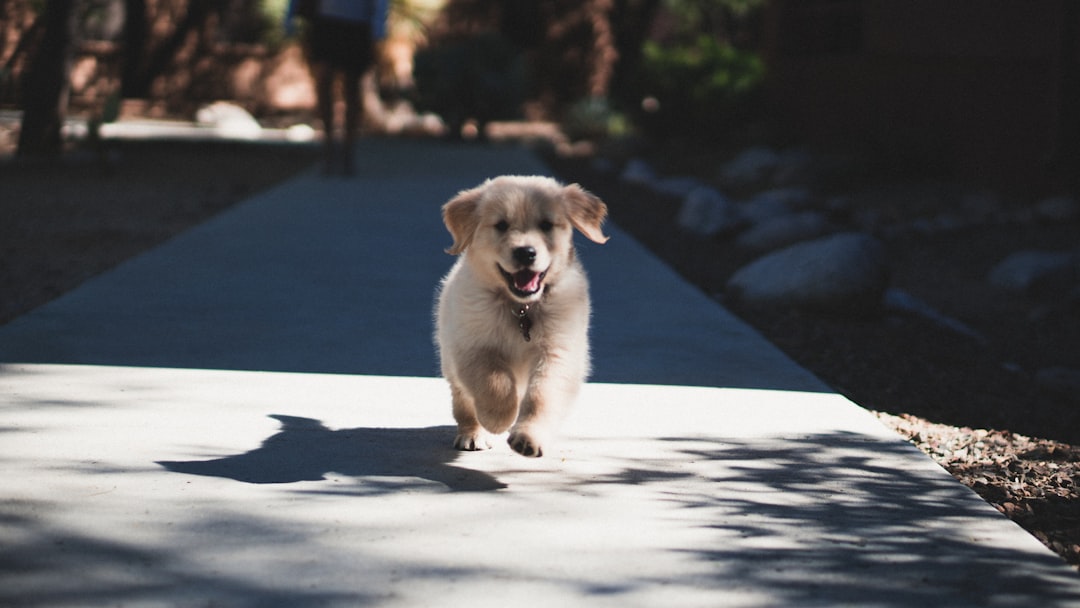Guiding Your Four-Month-Old Puppy: Development, Training, and Care
A comprehensive guide on what to expect and how to navigate your four-month-old puppys development, including physical and behavioral changes, socialization and training, exercise and playtime guidelines, nutritional requirements, dental care and grooming tips, dealing with unusual behavior, health maintenance and vaccination, effective training and relationship building, and developmental milestones and challenges.
Puppy Development at Four Months
Your four-month-old puppy has reached a significant stage in their development, and understanding the physical and behavioral changes during this period is crucial for providing appropriate care. At this stage, your puppy experiences rapid growth in size and weight, resembling a miniature adult. It’s important to note that this phase is marked by increased coordination, exploration, and a shift towards independence, as your puppy starts showing distinct preferences and developing its unique personality traits. Additionally, you may observe heightened curiosity and affectionate behavior in your growing puppy. For instance, a four-month-old Golden Retriever may exhibit increased confidence and a strong desire to explore its surroundings, showcasing the typical independent behavior associated with this stage of development.
Socialization and Positive Reinforcement Training
Continued socialization is crucial for the healthy development of your four-month-old puppy. Introducing your puppy to various social situations, people, and other animals allows them to adapt and become well-adjusted adults. Positive reinforcement training becomes increasingly important at this stage to address behavioral changes and preferences. By using positive reinforcement, such as treats, praise, or toys, you can effectively encourage desired behaviors in your puppy. It’s also essential to manage teething and chewing behavior with constant supervision and approved chew toys. For example, a four-month-old Labrador Retriever may benefit from positive reinforcement training when socializing with other dogs at a local park, ultimately helping them to develop positive social behaviors.
Exercise and Playtime Guidelines
Your four-month-old puppy requires recommended exercise and playtime routines to support their growth and development. Incorporating interactive play and physical activities is crucial to stimulate both their physical and mental well-being. However, it’s important to emphasize the need for controlled exercise to prevent overexertion and potential injury, given the puppy’s ongoing development. One way to achieve this is by engaging your puppy in moderate activities such as short walks, interactive games, and basic obedience training, tailored to their breed and individual energy levels.
 Nutritional Requirements and Considerations
Nutritional Requirements and Considerations
Dietary needs for a growing four-month-old puppy should include balanced nutrition to support their development. It’s essential to incorporate healthy fats for brain development and provide fresh food for dental care and overall health. Establishing a consistent feeding schedule and monitoring your puppy’s weight and growth are also important considerations for their well-being. For instance, a four-month-old German Shepherd may require a diet rich in protein and healthy fats to support their rapid growth and energy requirements.
 Dental Care and Grooming Tips
Dental Care and Grooming Tips
Regular grooming, brushing, and dental care are crucial to maintain your puppy’s overall health. Addressing teething-related challenges with approved chew toys and freezable puppy chews can help soothe your puppy’s teething gums. It’s also important to incorporate dental hygiene into your puppy’s routine for long-term oral health. An example of this is providing a four-month-old Beagle with appropriate chew toys and incorporating regular teeth cleaning into their grooming routine to ensure good dental health as they grow older.
 Dealing with Unusual Puppy Behavior
Dealing with Unusual Puppy Behavior
If your supposedly four-month-old puppy looks older and exhibits very calm and mellow behavior, it’s essential to provide a comfortable and stimulating environment for them. Understanding and addressing atypical behavior patterns in puppies require patience and strategies tailored to your puppy’s specific needs. For instance, if your puppy displays unusual calmness, it’s important to consult with a veterinarian to rule out any underlying health issues and to ensure that their needs and temperament are being appropriately addressed.
Health Maintenance and Vaccination
Regular health check-ups and core vaccinations are crucial for your puppy’s well-being. Additionally, considerations for spaying, neutering, and the potential benefits of purchasing health insurance should be discussed with your veterinarian to ensure comprehensive care for your puppy’s health. For example, a four-month-old Dachshund may require specific vaccinations and preventive care measures to protect them from common health issues associated with their breed.
Effective Training and Relationship Building
Positive reinforcement and consistent training techniques are essential for establishing a strong bond with your puppy. Considerations for professional obedience courses and the need for patience and confidence in your training approach are important for your puppy’s long-term well-being. Building a trusting relationship with your puppy through positive reinforcement and consistent training can help them develop into well-behaved and sociable adult dogs.
Developmental Milestones and Challenges
At four months old, your puppy is experiencing key developmental milestones such as increased independence and teething. It’s important to address regression in housetraining and understand the onset of the rebellious adolescent phase. During this crucial developmental stage, patience and understanding are vital for nurturing your puppy’s growth and well-being. For example, a four-month-old Boxer may exhibit increased independence and occasional rebellious behavior, signaling the need for consistent training and understanding to guide them through this phase.
[1] Quora – Puppy’s BehaviorVetstreet – Puppy Development [3] Pupbox – Training Tips for 4-Month-Old PuppiesThe Farmer’s Dog – Puppy Development Stages


 Nutritional Requirements and Considerations
Nutritional Requirements and Considerations Dental Care and Grooming Tips
Dental Care and Grooming Tips Dealing with Unusual Puppy Behavior
Dealing with Unusual Puppy Behavior